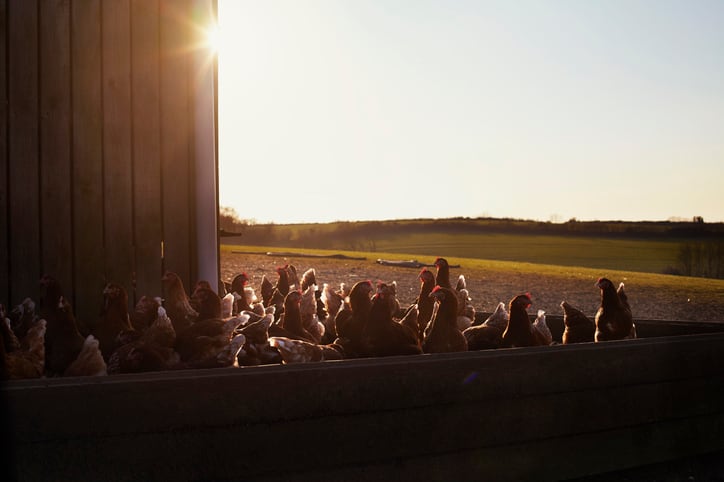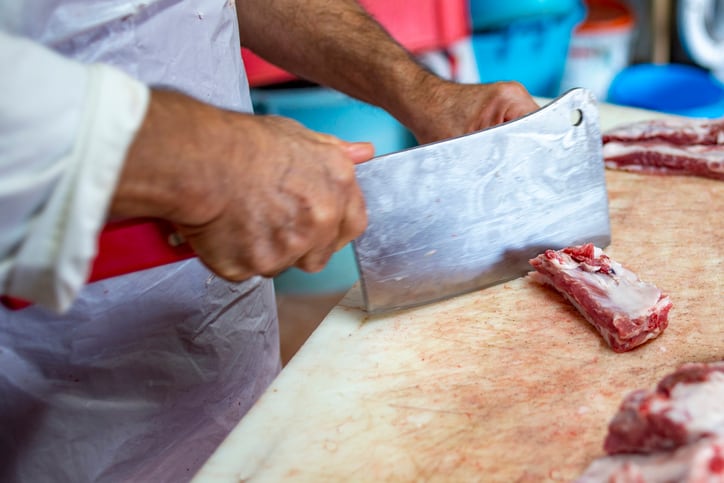Within the next year, the protein company plans to open nine new facilities that are already underway that will be dedicated to fully-cooked and ready-to-eat products, and it is “already working on blueprints and drawings and land purchases for the next series of fully cooked plants,” CEO Donnie King said at BMO Capital Markets Global Farm-to-Market conference this week.
“That’s where we’re seeing the most growth and we think that will be important in this inflationary environment – whether it is food [at home] or particularly food away from home. When you have skilled or unskilled or no labor in the back of the house, having ready-to-eat type products is an advantage for the owner or operator and at the store level,” he explained.
CFO Steward Glendinning agreed that prepared foods have “a lot of opportunity” in terms of increasing household penetration and driving innovation.
“Think about snacks – we’ve developed a line of kids snacking and adult snacking, and the growth is good. Those are multibillion dollar categories that we’re just touching,” he said.
The company entered the $1bn children’s refrigerated pre-packaged snack category late last year with the launch of Hillshire Farm SNACKED!, which is an extension of the line targeting adults and combines proteins, like string cheese and pepperoni, with sweets, like confetti cake bites, for a complete eating occasion.
As illustrated by SNACKED!, Glendinning notes that Tyson Foods already has the ingredients and the routes to market to succeed in the ready-to-eat space, it just needs the manufacturing facilities, and those are coming online quickly.
Iconic brands are trusted by those with tight budgets
Even as Tyson Foods invests in prepared and value-added products, it continues to “feel good about” and invest in its many billion dollar, iconic brands, including Jimmy Dean, Hillshire, Tyson’s Ballpart and others, King said.
He explained these have a great value proposition and research into the company’s historic sales shows these brands tend to hold up better during high inflationary times more so than private label or store brands.
“Think about the consumer – they typically do not experiment with private label brands or products during times of high inflation. We have the Great Recession to look back on. They go to those trusted brands because they know what they’re getting in that dollar, in that amount of money,” he said.
While this may be a strategy for some consumers, market data shows that some consumers – particularly lower income shoppers – are starting to trade down and buy either smaller packages or less expensive store brand options.
Ready-to-eat meat growing at a CAGR of 4.8%
In addition to the nine new facilities focused on fully-cooked and ready-to-eat products, Tyson Foods plans to bring on an additional three plants for a total of 12 in the next two years.
Together these will increase the company’s capacity by about 1.3 billion pounds and allow the company to have about 50% of its volume as value-added by the end of fiscal 2024.
Market research suggests Tyson Foods' bet on ready-to-eat meat is a good one with Straits Research predicting the segment will grow at a compound annual growth rate of 4.8% globally from 2019 through 2026.
It attributes the projected growth to changing lifestyles that place a premium on convenience as well as efforts by companies to improve the taste and address consumer preferences for ready-to-eat meat products.
Headwinds that could hold back the segment include increased competition from ready-to-eat, heat-and-eat and value-added plant-based products as well as food safety threats, according to the report.
Indeed, last year Tyson recalled nearly 9 million pounds of frozen, fully cooked chicken at the behest of the US Department of Agriculture due to a risk of listeria contamination.
Despite these risks, Tyson Foods is confident in the value proposition of ready-to-eat, noting demand currently is higher than capacity, and that is working closely with customers and consumers grow the business.




